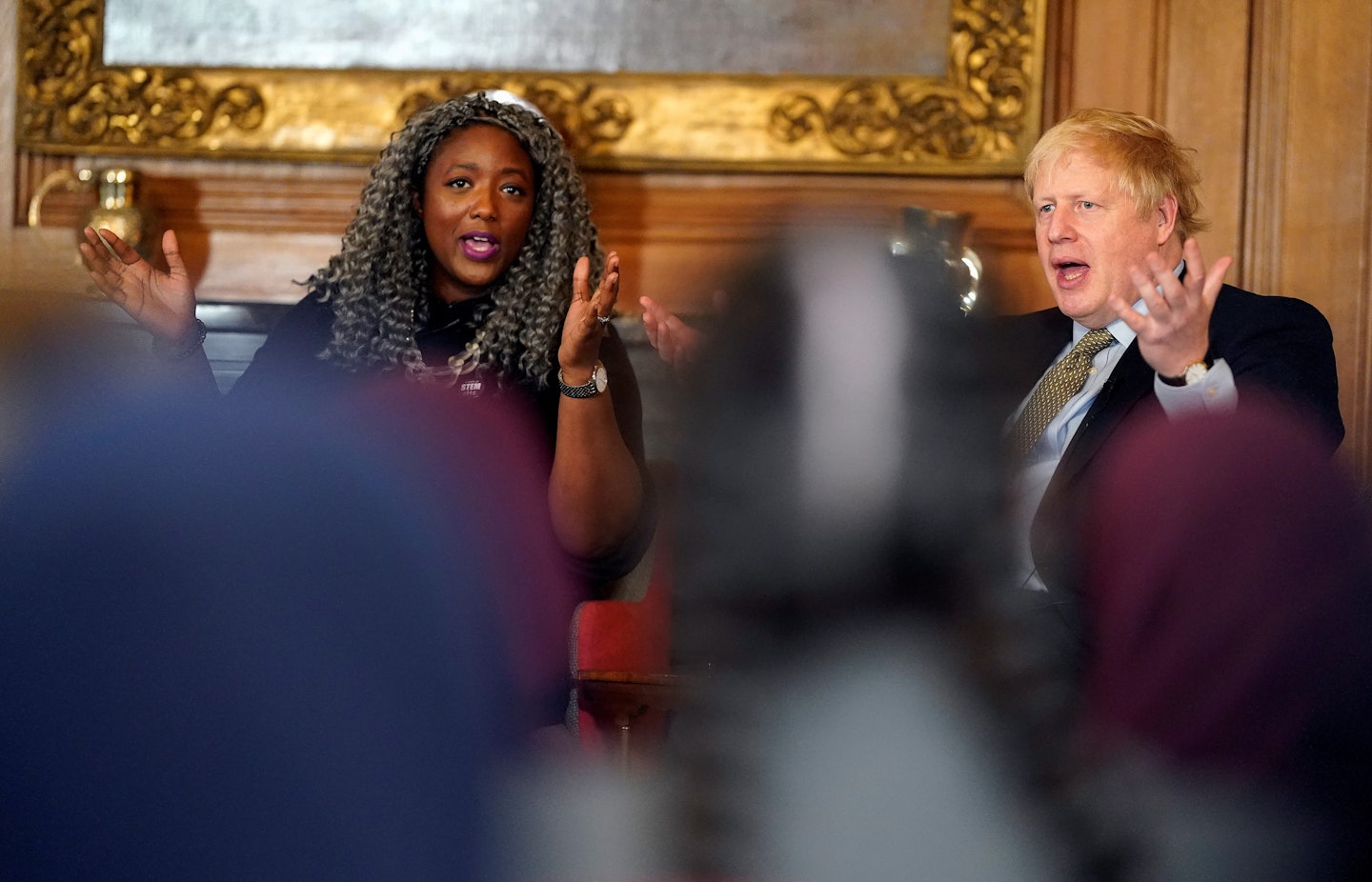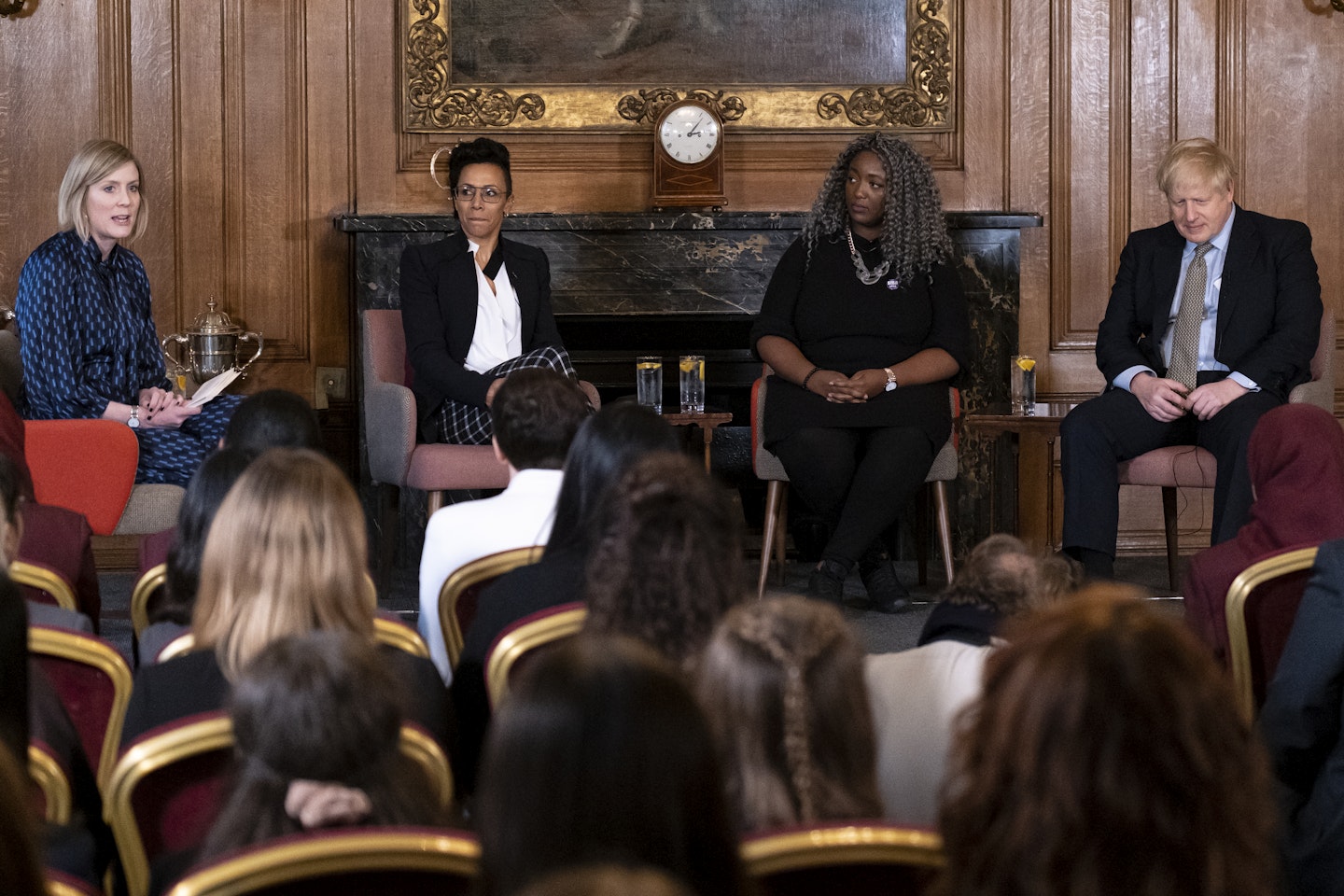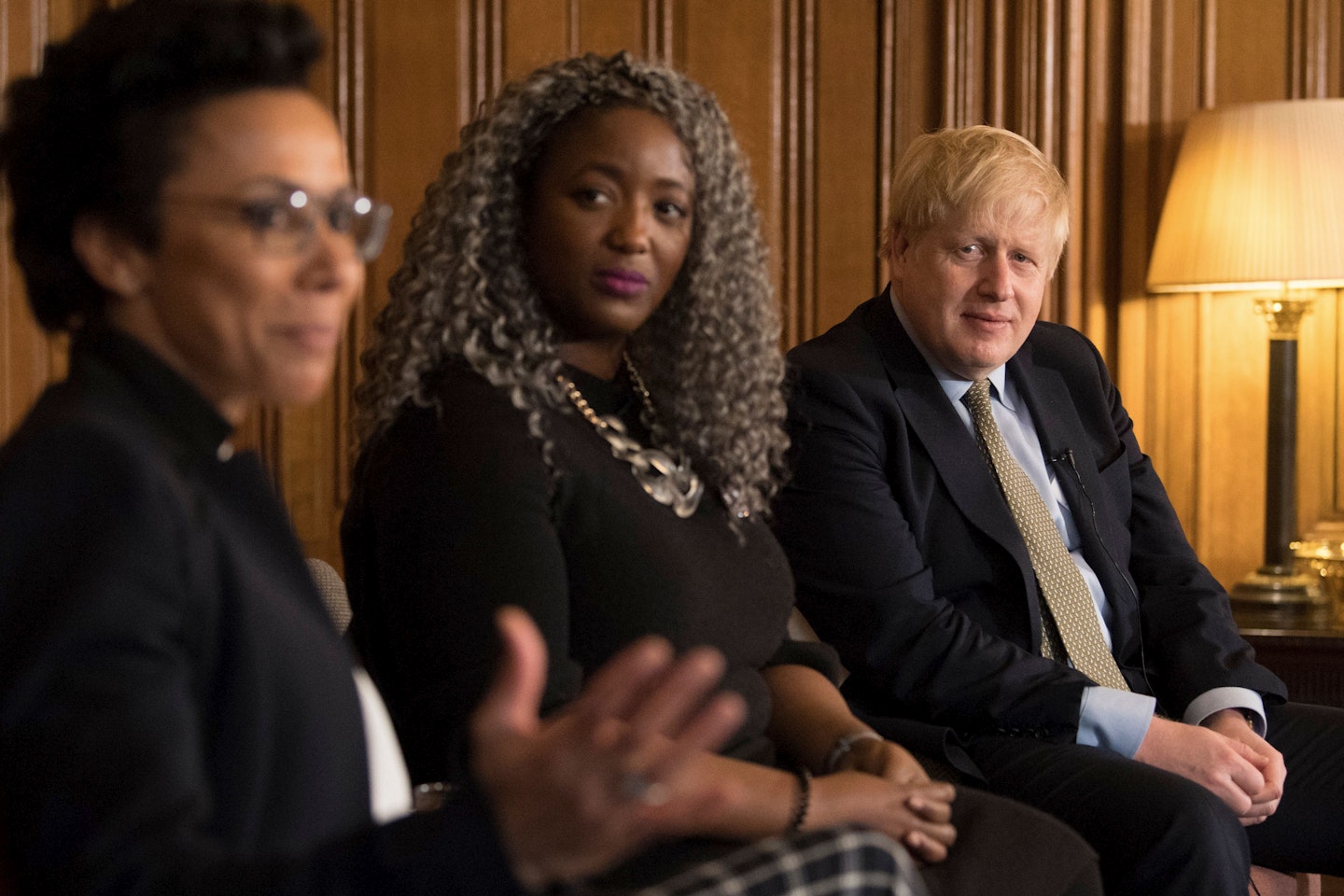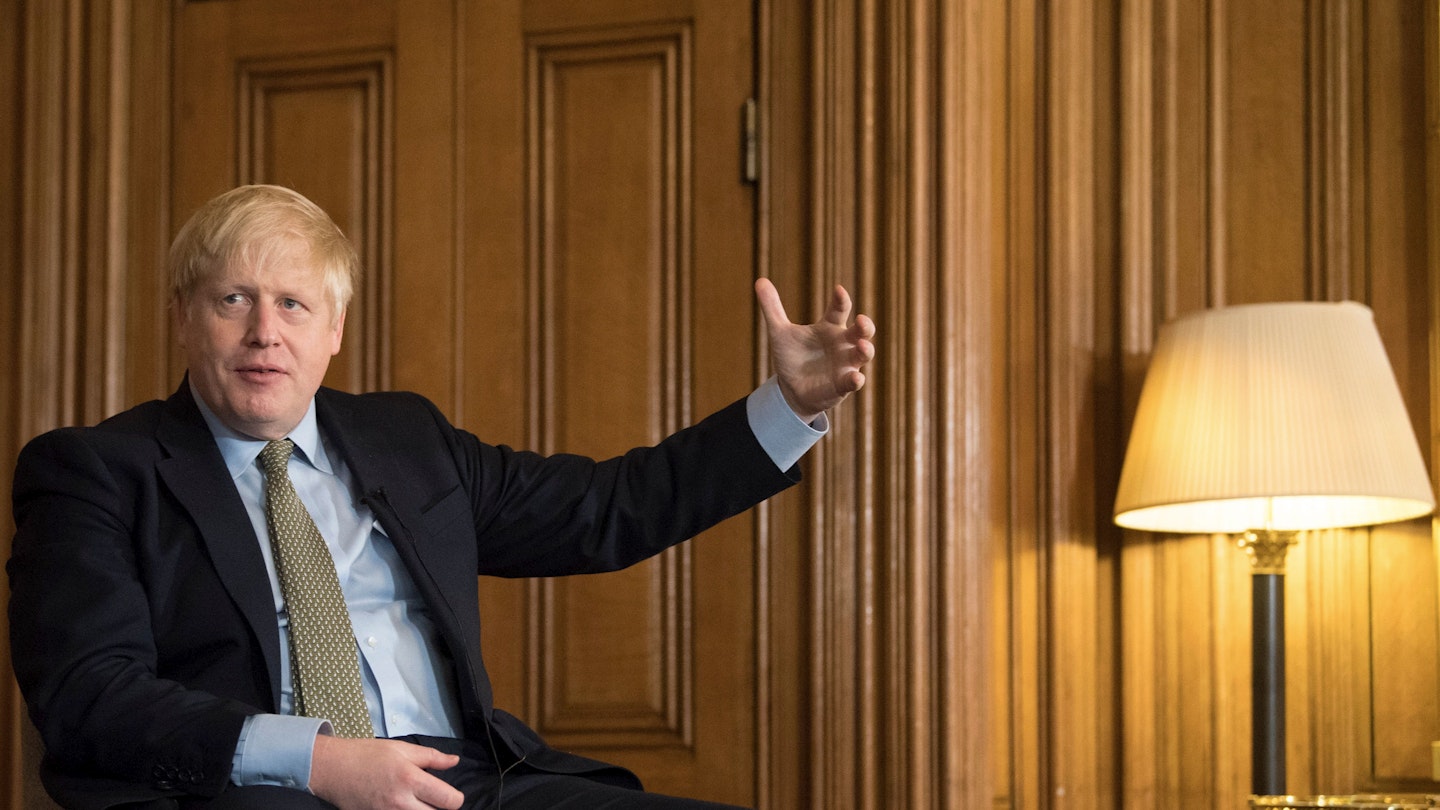‘Do you believe men and women are equal?’ the Prime Minister bellowed at one point in his rallying speech at a Downing Street reception earlier this week to mark International Women’s Day. No prizes for guessing what the audience of 50 girls from five schools around the country, businesswomen and his new fiancée bellowed back.
In a state room overlooked by a painting of Ada Lovelace, the female mathematician credited with realising the full potential of the modern-day computer, Boris Johnson went on to underline a pledge he made as Foreign Secretary: that his government is committed to providing 12 years of quality education for all girls, in the UK and around the world.

‘Let’s make sure that every girl in the world gets the same investment, same care, same love, same attention in her education as every boy in the world,’ he said. ‘This is the best way to help economies grow, tackle poverty, prevent early marriage and empower women. It is the single most important utensil at the disposal of humanity to change all our lives for the better.’
That this was the second time in as many weeks I’ve been invited to Downing Street to hear the Prime Minister declare his intention to make universal female education a central part of his policy is perhaps indicative of how seriously he’s taking this issue. Another is the news the PM went on to announce; that he’s appointed Baroness Liz Sugg as the UK’s first ever Special Envoy for Girls’ Education, a new role that will help accelerate progress towards getting more girls in the world’s poorest countries into schools and benefitting from quality learning.
‘Today around 130 million girls worldwide are being denied the right to an education, particularly in the world’s poorest countries,’ explained Baroness Sugg of the role’s creation. ‘Girls are kept out of school due to poverty, the threat of violence and because often, girls are simply not valued as much as boys. This tragic waste of potential must end.'
‘Giving girls the chance to learn is not only the right thing to do, it’s one of the smartest investments we can make with UK aid,’ she added.

The reception followed a panel discussion I’d chaired between Johnson, Dr Anne-Marie Imafidon, founder of STEMettes, the social enterprise that helps girls pursue a career in STEM subjects, and Olympic gold medallist Dame Kelly Holmes, where all three talked about what International Women’s Day meant to them. Johnson kicked off the panel declaring that his sister, Rachel, ‘kicked sexism out of him from an early age’ because, despite being younger than him, she was a far better reader – and went on to reference a piece he wrote for Grazia last week about other women who’ve shaped him, including Malala and his grandmother, nicknamed ‘Grannybutter.’
What we need to do now as a society is make sure that we have just as many women in the boardroom and just as many female CEOs.
But my questions were easy compared to those from a selection of the audience of girls in Year 9, about to make their GCSE choices. Quizzed about how he was tackling the gender pay gap, the Prime Minister replied decisively: ‘We’re making it obligatory for companies to show the discrepancies in pay, so that there’s absolute transparency. It’s not fair. There should be equal pay for equal work, irrespective of gender and all the rest of it.’

In response to a question from a girl at Tauheedel Islam Girls High School about how his government would help ensure women can be future leaders, Johnson had this to say about the future workplace: ‘There’s going to be a huge number of jobs for the environment – technical solutions for reducing CO2 outputs, or actually changing homes and vehicles. There will also be a lot of jobs in trade industries. Women are currently underrepresented, massively, in construction, engineering, and all of those sectors. And that’s where I want to see much more progress.’
He ended on a similarly rallying note: ‘We’re actually quite successful, in one respect: compared to my mother’s generation, women outnumber men at university and in higher education – that’s a fantastic achievement. That’s a turnaround. What we need to do now as a society is make sure that we have just as many women in the boardroom and just as many female CEOs. It’s no good just having the beginnings of change, you’ve got to see the change right the way through to the top. And don’t forget, the Conservative party is the only government to have not just one, but two female prime ministers.’
READ MORE: From Malala To Kate Bush: The Five Women Who Have Shaped Boris Johnson’s Life
